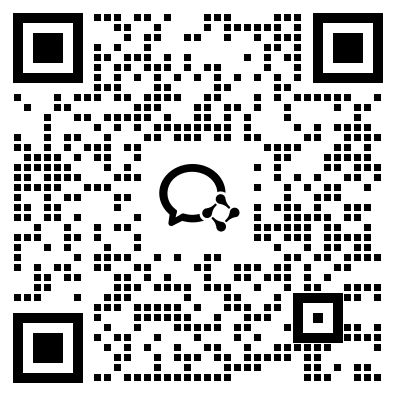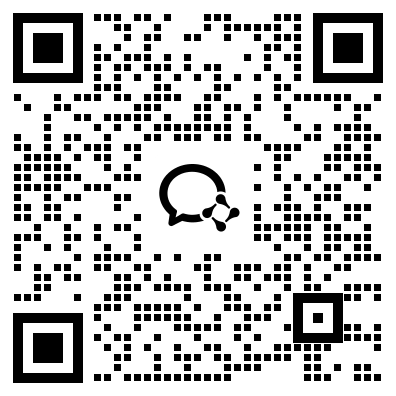考研201英语(一)在线题库每日一练(一十二)
摘要:以下是希赛网给大家分享考研201英语(一)在线题库每日一练,希望通过刷题可以帮助大家巩固重要知识点,对知识点查漏补缺,祝愿大家能顺利通过考试!
本文提供考研201英语(一)在线题库每日一练,以下为具体内容
1、All around the world, lawyers generate more hostility than the members of any other profession— with the possible exception of journalism. But there are few places where clients have more grounds for complaint than America.During the decade before the economic crisis, spending on legal services in America grew twice as fast as inflation. The best lawyers made skyscrapers-full of money, tempting ever more students to pile into law schools. But most law graduates never get a big-firm job. Many of them instead become the kind of nuisance-lawsuit filer that makes the tort system a costly nightmare.There are many reasons for this. One is the excessive costs of a legal education. There is just one path for a lawyer in most American states: a four-year undergraduate degree in some unrelated subject, then a three-year law degree at one of 200 law schools authorized by the American Bar Association and an expensive preparation for the bar exam. This leaves today's average law-school graduate with $100,000 of debt on top of undergraduate debts. Law-school debt means that they have to work fearsomely hard.Reforming the system would help both lawyers and their customers. Sensible ideas have been around for a long time, but the state-level bodies that govern the profession have been too conservative to implement them. One idea is to allow people to study law as an undergraduate degree. Another is to let students sit for the bar after only two years of law school. If the bar exam is truly a stern enough test for a would-be lawyer, those who can sit it earlier should be allowed to do so. Students who do not need the extra training could cut their debt mountain by a third.The other reason why costs are so high is the restrictive guild-like ownership structure of the business. Except in the District of Columbia, non-lawyers may not own any share of a law firm. This keeps fees high and innovation slow. There is pressure for change from within the profession, but opponents of change among the regulators insist that keeping outsiders out of a law firm isolates lawyers from the pressure to make money rather than serve clients ethically.In fact, allowing non-lawyers to own shares in law firms would reduce costs and improve services to customers, by encouraging law firms to use technology and to employ professional managers to focus on improving firms' efficiency. After all, other countries, such as Australia and Britain, have started liberalizing their legal professions. America should follow. 1.A lot of students take up law as their profession due to( ).2.Which of the following adds to the costs of legal education in most American states?3.Hindrance to the reform of the legal system originates from ( ). 4.The guild-like ownership structure is considered “restrictive” partly because it ( ). 5.In this text, the author mainly discusses( ).
问题1
A、the growing demand from clients
B、the increasing pressure of inflation
C、the prospect of working in big firms
D、the attraction of financial rewards
问题2
A、Higher tuition fees for undergraduate studies.
B、Pursuing a bachelor's degree in another major.
C、Admissions approval from the bar association.
D、Receiving training by professional associations.
问题3
A、non-professionals' sharp criticism
B、lawyers' and clients' strong resistance
C、the rigid bodies governing the profession
D、the stem exam for would-be lawyers
问题4
A、prevents lawyers from gaining due profits
B、keeps lawyers from holding law-firm shares
C、aggravates the ethical situation in the trade
D、bans outsiders' involvement in the profession
问题5
A、flawed ownership of America's law firms and its causes
B、the factors that help make a successful lawyer in America
C、a problem in America's legal profession and solutions to it
D、the role of undergraduate studies in America's legal education
2、The US $3-million Fundamental Physics Prize is indeed an interesting experiment, as Alexander Polyakov said when he accepted this year’s award in March. And it is far from the only one of its type. As a News Feature article in Nature discusses, a string of lucrative awards for researchers have joined the Nobel Prizes in recent years. Many, like the Fundamental Physics Prize, are funded from the telephone-number-sized bank accounts of Internet entrepreneurs. These benefactors have succeeded in their chosen fields, they say, and they want to use their wealth to draw attention to those who have succeeded in science.What's not to like? Quite a lot, according to a handful of scientists quoted in the News Feature. You cannot buy class, as the old saying goes, and these upstart entrepreneurs cannot buy their prizes the prestige of the Nobels. The new awards are an exercise in self-promotion for those behind them, say scientists. They could distort the achievement-based system of peer-review-led research. They could cement the status quo of peer-reviewed research. They do not fund peer-reviewed research. They perpetuate the myth of the lone genius.The goals of the prize-givers seem as scattered as the criticism. Some want to shock, others to draw people into science, or to better reward those who have made their careers in research.As Nature has pointed out before, there are some legitimate concerns about how science prizes—both new and old—are distributed. The Breakthrough Prize in Life Sciences, launched this year, takes an unrepresentative view of what the life sciences include. But the Nobel Foundation's limit of three recipients per prize, each of whom must still be living, has long been outgrown by the collaborative nature of modern research—as will be demonstrated by the inevitable row over who is ignored when it comes to acknowledging the discovery of the Higgs boson. The Nobels were, of course, themselves set up by a very rich individual who had decided what he wanted to do with his own money. Time, rather than intention, has given them legitimacy.As much as some scientists may complain about the new awards, two things seem clear. First, most researchers would accept such a prize if they were offered one. Second, it is surely a good thing that the money and attention come to science rather than go elsewhere. It is fair to criticize and question the mechanism—that is the culture of research, after all—but it is the prize-givers, money to do with as they please. It is wise to take such gifts with gratitude and grace.1.The Fundamental Physics Prize is seen as( ).2.The critics think that the new awards will most benefit ( ). 3.The discovery of the Higgs boson is a typical case which involves ( ). 4.According to Paragraph 4, which of the following is true of the Nobels?5.The author believes that the new awards are( ).
问题1
A、a symbol of the entrepreneurs' wealth
B、a possible replacement of the Nobel Prizes
C、a handsome reward for researchers
D、an example of bankers, investments
问题2
A、the profit-oriented scientists
B、the founders of the awards
C、the achievement-based system
D、peer-review-led research
问题3
A、the joint effort of modern researchers
B、controversies over the recipients' status
C、the demonstration of research findings
D、legitimate concerns over the new prizes
问题4
A、History has never cast doubt on them.
B、They are the most representative honor.
C、Their legitimacy has long been in dispute.
D、Their endurance has done justice to them.
问题5
A、harmful to the culture of research
B、acceptable despite the criticism
C、subject to undesirable changes
D、unworthy of public attention
3、King Juan Carlos of Spain once insisted “kings don't abdicate, they dare in their sleep.” But embarrassing scandals and the popularity of the republican left in the recent Euro-elections have forced him to eat his words and stand down. So, does the Spanish crisis suggest that monarchy is seeing its last days? Does that mean the writing is on the wall for all European royals, with their magnificent uniforms and majestic lifestyle? The Spanish case provides arguments both for and against monarchy. When public opinion is particularly polarised, as it was following the end of the Franco regime, monarchs can rise above “mere” politics and “embody” a spirit of national unity. It is this apparent transcendence of politics that explains monarchs' continuing popularity polarized. And also, the Middle East excepted, Europe is the most monarch-infested region in the world, with 10 kingdoms (not counting Vatican City and Andorra). But unlike their absolutist counterparts in the Gulf and Asia, most royal families have survived because they allow voters to avoid the difficult search for a non-controversial but respected public figure. Even so, kings and queens undoubtedly have a downside. Symbolic of national unity as they claim to be, their very history—and sometimes the way they behave today—embodies outdated and indefensible privileges and inequalities. At a time when Thomas Piketty and other economists are warning of rising inequality and the increasing power of inherited wealth, it is bizarre that wealthy aristocratic families should still be the symbolic heart of modern democratic states. The most successful monarchies strive to abandon or hide their old aristocratic ways. Princes and princesses have day-jobs and ride bicycles, not horses (or helicopters). Even so, these are wealthy families who party with the international 1%, and media intrusiveness makes it increasingly difficult to maintain the right image. While Europe's monarchies will no doubt be smart enough to survive for some time to come, it is the British royals who have most to fear from the Spanish example. It is only the Queen who has preserved the monarchy's reputation with her rather ordinary (if well-heeled) granny style. The danger will come with Charles, who has both an expensive taste of lifestyle and a pretty hierarchical view of the world. He has failed to understand that monarchies have largely survived because they provide a service–as non-controversial and non-political heads of state. Charles ought to know that as English history shows, it is kings, not republicans, who are the monarchy's worst enemies. 1.According to the first two Paragraphs, King Juan Carlos of Spain( ). 2.Monarchs are kept as heads of state in Europe mostly ( ). 3.Which of the following is shown to be odd, according to Paragraph 4? 4.The British royals “have most to fear” because Charle ( ). 5.Which of the following is the best title of the text?
问题1
A、used turn enjoy high public support
B、was unpopular among European royals
C、cased his relationship with his rivals
D、ended his reign in embarrassment
问题2
A、owing to their undoubted and respectable status
B、to achieve a balance between tradition and reality
C、to give voter more public figures to look up to
D、due to their everlasting political embodiment
问题3
A、Aristocrats' excessive reliance on inherited wealth.
B、The role of the nobility in modern democracies.
C、The simple lifestyle of the aristocratic families.
D、The nobility's adherence to their privileges.
问题4
A、takes a rough line on political issues
B、fails to change his lifestyle as advised
C、takes republicans as his potential allies
D、fails to adapt himself to his future role
问题5
A、Carlos, Glory and Disgrace Combined
B、Charles, Anxious to Succeed to the Throne
C、Carlos, a Lesson for All European Monarchs
D、Charles, Slow to React to the Coming Threats
4、Just how much does the Constitution protect your digital data? The Supreme Court will now consider whether police can search the contents of a mobile phone without a warrant if the phone is on or around a person during an arrest. California has asked the justices to refrain from a sweeping ruling, particularly one that upsets the old assumptions that authorities may search through the possessions of suspects at the time of their arrest. It is hard, the state argues, for judges to assess the implications of new and rapidly changing technologies. The court would be recklessly modest if it followed California's advice. Enough of the implications are discernable, even obvious, so that the justice can and should provide updated guidelines to police, lawyers and defendants. They should start by discarding California's lame argument that exploring the contents of a smart phone—a vast storehouse of digital information—is similar to say, going through a suspect's purse. The court has ruled that police don't violate the Fourth Amendment when they go through the wallet or pocketbook, of an arrestee without a warrant. But exploring one's smartphone is more like entering his or her home. A smartphone may contain an arrestee's reading history, financial history, medical history and comprehensive records of recent correspondence. The development of “cloud computing,” meanwhile, has made that exploration so much the easier. Americans should take steps to protect their digital privacy. But keeping sensitive information on these devices is increasingly a requirement of normal life. Citizens still have a right to expect private documents to remain private and protected by the Constitution's prohibition on unreasonable searches.As so often is the case, stating that principle doesn't ease the challenge of line-drawing. In many cases, it would not be overly burdensome for authorities to obtain a warrant to search through phone contents. They could still invalidate Fourth Amendment protections when facing severe, urgent circumstances, and they could take reasonable measures to ensure that phone data are not erased or altered while waiting for a warrant. The court, though, may want to allow room for police to cite situations where they are entitled to more freedom. But the justices should not swallow California's argument whole. New, disruptive technology sometimes demands novel applications of the Constitution's protections. Orin Kerr, a law professor, compares the explosion and accessibility of digital information in the 21st century with the establishment of automobile use as a digital necessity of life in the 20th: The justices had to specify novel rules for the new personal domain of the passenger car then; they must sort out how the Fourth Amendment applies to digital information now. 1.The Supreme Court will work out whether, during an arrest, it is legitimate to( ).2.The author's attitude toward California's argument is one of ( ). 3.The author believes that exploring one's phone contents is comparable to ( ). 4.In Paragraphs 5 and 6, the author shows his concern that ( ). 5.Orin Kerr's comparison is quoted to indicate that( ).
问题1
A、search for suspects' mobile phones without a warrant
B、check suspects' phone contents without being authorized
C、prevent suspects from deleting their phone contents
D、prohibit suspects from using their mobile phones
问题2
A、tolerance
B、indifference
C、disapproval
D、cautiousness
问题3
A、getting into one's residence
B、handling one's historical records
C、scanning one's correspondences
D、going through one's wallet
问题4
A、principles are hard to be clearly expressed
B、the court is giving police less room for action
C、phones are used to store sensitive information
D、citizens, privacy is not effectively protected
问题5
A、the Constitution should be implemented flexibly
B、new technology requires reinterpretation of the Constitution
C、California's argument violates principles of the Constitution
D、principles of the Constitution should never be altered
5、The journal Science is adding an extra round of statistical checks to its peer-review process, editor-in-chief Marcia McNutt announced today. The policy follows similar efforts from other journals, after widespread concern that basic mistakes in data analysis are contributing to the irreproducibility of many published research findings. “Readers must have confidence in the conclusions published in our journal,” writes McNutt in an editorial. Working with the American Statistical Association, the journal has appointed seven experts to a statistics board of reviewing editors (SBoRE). Manuscript will be flagged up for additional scrutiny by the journal's internal editors, or by its existing Board of Reviewing Editors or by outside peer reviewers. The SBoRE panel will then find external statisticians to review these manuscripts. Asked whether any particular papers had impelled the change, McNutt said: “The creation of the ‘statistics board’ was motivated by concerns broadly with the application of statistics and data analysis in scientific research and is part of Science's overall drive to increase reproducibility in the research we publish.” Giovanni Parmigiani, a biostatistician at the Harvard School of Public Health, a member of the SBoRE group, says he expects the board to “play primarily an advisory role.” He agreed to join because he “found the foresight behind the establishment of the SBoRE to be novel, unique and likely to have a lasting impact. This impact will not only be through the publications in Science itself, but hopefully through a larger group of publishing places that may want to model their approach after Science.”John Ioannidis, a physician who studies research methodology, says that the policy is “a most welcome step forward” and “long overdue.”“Most journals are weak in statistical review, and this damages the quality of what they publish. I think that, for the majority of scientific papers nowadays, statistical review is more essential than expert review,” he says. But he noted that biomedical journals such as Annals of Internal Medicine, the Journal of the American Medical Association and The Lancet pay strong attention to statistical review.Professional scientists are expected to know how to analyze data, but statistical errors are alarmingly common in published research, according to David Vaux, a cell biologist. Researchers should improve their standards, he wrote in 2012, but journals should also take a tougher line, “engaging reviewers who are statistically literate and editors who can verify the process.” Vaux says that Science's idea to pass some papers to statisticians “has some merit, but a weakness is that it relies on the board of reviewing editors to identify ‘the papers that need scrutiny’ in the first place.”1.It can be learned from Paragraph 1 that( ).2.The phrase “flagged up” (Paragraph 2) is the closest in meaning to ( ). 3.Giovanni Parmigiani believes that the establishment of the SBoRE may ( ). 4.David Vaux holds that what Science is doing now ( ). 5.Which of the following is the best title of the text?
问题1
A、science intends to simplify its peer-review process
B、journals are strengthening their statistical checks
C、few journals are blamed for mistakes in data analysis
D、lack of data analysis is common in research projects
问题2
A、found
B、revised
C、marked
D、stored
问题3
A、pose a threat to all its peers
B、meet with strong opposition
C、increase Science's circulation
D、set an example for other journals
问题4
A、adds to researchers' workload
B、diminishes the role of reviewers
C、has room for further improvement
D、is to fail in the foreseeable future
问题5
A、Science Joins Push to Screen Statistics in Papers.
B、Professional Statisticians Deserve More Respect.
C、Data Analysis Finds Its Way onto Editors' Desks.
D、Statisticians Are Coming Back with Science.
延伸阅读

考研微信公众号

考研备考资料免费领取
去领取
- 3
- 0
- 0
 专注在线职业教育25年
专注在线职业教育25年









 扫描二维码
扫描二维码
 扫描二维码
扫描二维码








